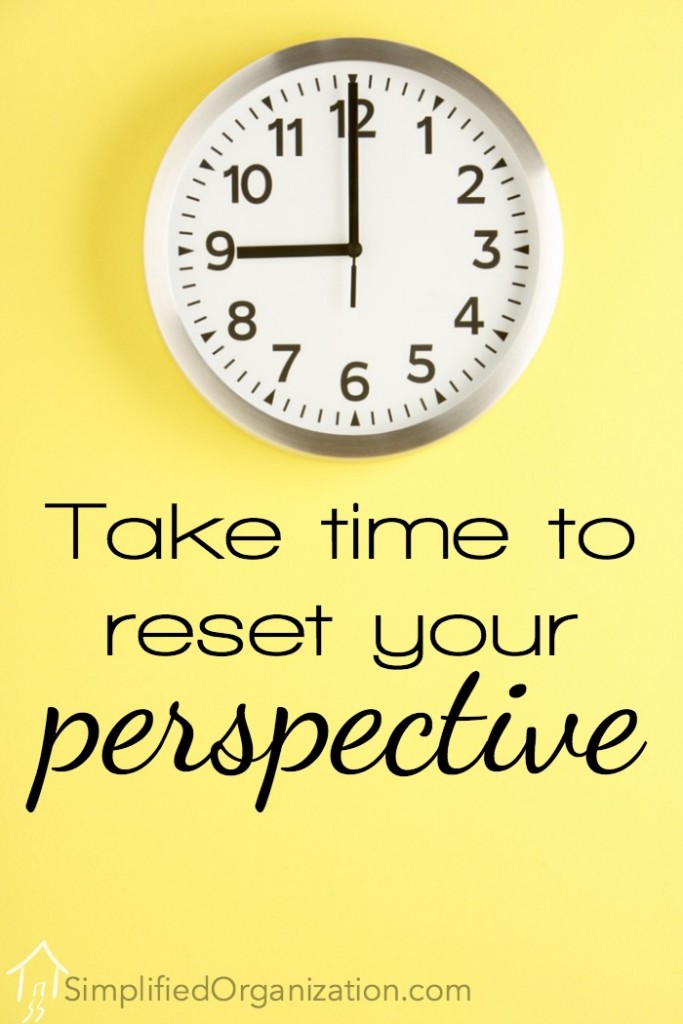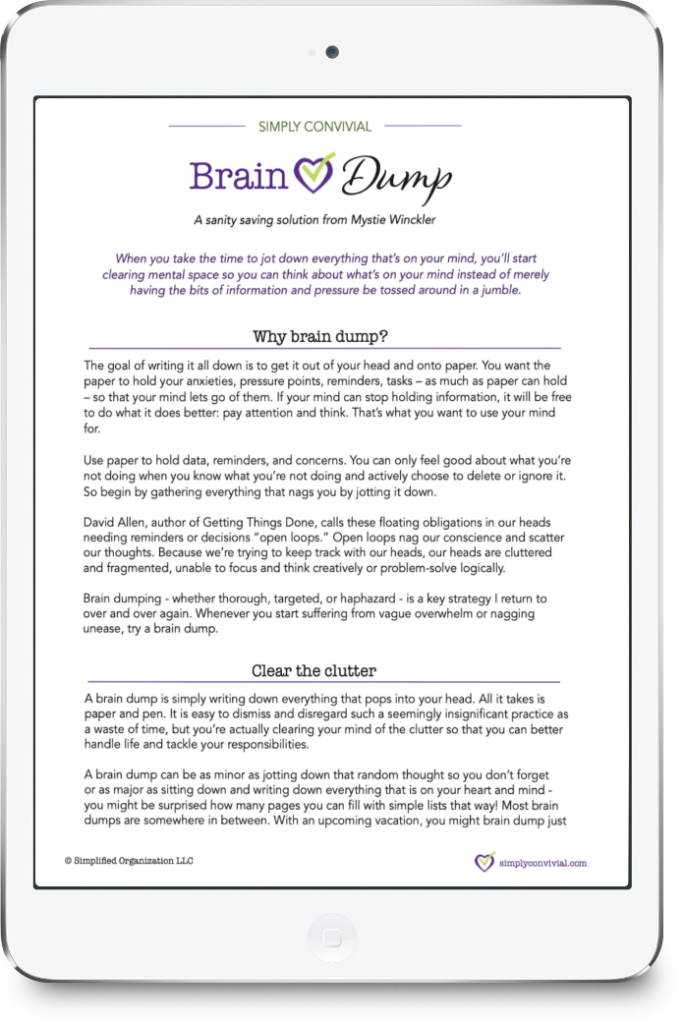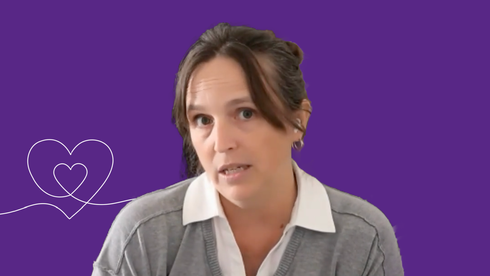You need time to reset your perspective

Here at Simply Convivial, I like to talk about how organizing your attitude is the most important thing you can organize – because it’s true.
Many of us live in survival mode for long stretches of time during different seasons of mothering. That’s simply part of the gig. However, too often I think we forget that there are other modes we can live in. We can fail to recognize that we could rearrange our days to provide ourselves with some predictable and uninterrupted moments. Once we do that, we must also take the next step and use those moments not for shopping, not for pedicures, not for Facebook or a novel.
We must use the times we’ve carved out for prayerfully getting our priorities in order. These other recreational activities are all acceptable and sometimes refreshing (not always) ways to chill, but we should only add them on top of or after using time to sort through the junk in our head and align our perspective again with what we know to be true.
One key concept that helped me clarify how to do this was Jennifer Fulwiler’s definition of survival mode:
If you don’t have at least a few blocks of time per week that are both predictable and uninterrupted, where you can prayerfully get your priorities in order, you are in survival mode.
Listen to this post!
The truth is you need some time reserved to think and wrap your head around your day and what’s going on. So, when I say “reset” time, I do mean quiet time alone, but it can be in your own house, on your own porch, during a walk down your block, or – if you can manage it – at your local coffee shop (that never seems “alone” to me) or library.
This is like taking a planning and strategy meeting with yourself. It is refreshing, but not in a recreational sense. Moreover, it doesn’t require multiple hours a day or week. It takes 15-30 minutes before the kids get up or after the kids are in bed, an hour on a Saturday, during nap time (where you are the one “napping” with a closed door). I’ve even fit it in by taking the kids to the park and letting them run while I think – not my ideal, but it works.

Right now – and I no longer have a baby waking me up at night, which makes a huge difference – I get up an hour before the kids, go for a walk or jog around the block, then have about 30 minutes to orient myself to the day. It’s my morning review.
There are three different tactics you can use during a regular “perspective ordering” time:
1. Look at the lists
There’s a funny truth about lists, calendars, and systems. If I want my lists & systems to work, I have to look at them and then use them. I have to review them to keep them front of mind if they are to help me in the moment-to-moment of my days. So take the time to review your lists and see what’s in store for you this day or this week.
I call this a morning review, and I’ve written about it here: 3 Steps for a Morning Review
2. Copy a quote
To recover your perspective, copy by long, slow hand a motivating verse, quote, or motto. Take a deep breath. This is head-clearing.
It is taking a moment to focus on what you believe, what you want to live out, and simply remembering truth. If we’re always go-go-go without reorienting ourselves to where we’re headed, we can get off track and lost in the woods quickly. Copying a meaningful quote or verse is like pressing a pause button that increases motivation and focus.
Copying a quote or verse by hand is a great way to remind yourself of the true story you are living, rather than the discouraging version that might be gaining ground. Learn more about the stories we tell ourselves here: Motivation Monday: Tell a True Story
3. Brain dump
You might call it journaling, rambling pages, mind mapping, or any number of other names. But it means getting what’s in your head onto paper. Sometimes we don’t even realize what’s in our head until we see it there in front of us in written words.
If you’re more of a talker than a writer, you might try finding a dictation app and taking a walk while talking into your phone and letting it do the writing for you.
Yes, simply writing it all down will reduce stress, frustration, and anxiety. It’s a key tactic to perform not only once, but continually. If you haven’t yet, check out my free guide that will get you started with the brain dump habit:
BRAIN DUMP
Clear your head of mental clutter.
- Reduce stress by getting your thoughts onto paper.
- Reduce frustration by assigning homes to everything.
- Reduce anxiety by knowing what you have on your plate.



